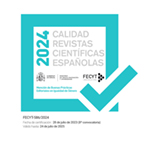Does the top manager’s profile influence sustainable development in local governments? Evidence from Brazil
Abstract
This study analyzes the influence of the top manager’s profile on sustainable development in local governments. In this research, we investigate 184 municipalities of the State of Ceará, northeastern Brazil, from 2009 to 2016. Data were analyzed through descriptive statistics and econometric models estimated by FGLS method for panel data. The results show that sustainable development is influenced by the following top manager’s attributes: age, socioeconomic status, experience, education, and political orientation. From a theoretical perspective, the study provides evidence that the Upper Echelons Theory is consistent and applicable in the public sector, and expands the theory by including political orientation, which emerged as a relevant manager’s attribute.
Downloads
Article download
License
Copyright (c) 2024 Cuadernos de Gobierno y Administración Pública

This work is licensed under a Creative Commons Attribution 4.0 International License.
In order to support the global exchange of knowledge, the journal Cuadernos de Gobierno y Administración Pública is allowing unrestricted access to its content as from its publication in this electronic edition, and as such it is an open-access journal. The originals published in this journal are the property of the Complutense University of Madrid and any reproduction thereof in full or in part must cite the source. All content is distributed under a Creative Commons Attribution 4.0 use and distribution licence (CC BY 4.0). This circumstance must be expressly stated in these terms where necessary. You can view the summary and the complete legal text of the licence.







